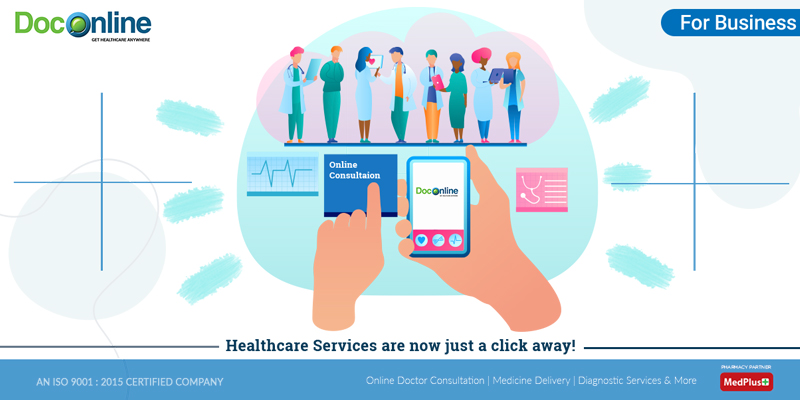Why Subscription Based Healthcare is Gaining Appeal Among Patients Today
The Increase of Subscription-Based Medical Care and Its Effect On Patient Care
As healthcare advances, the subscription-based design is acquiring grip, guaranteeing to change person care by offering predictability and availability. The possibility for these versions to improve healthcare shipment elevates pressing questions regarding their lasting sustainability and inclusivity. Are these membership solutions the future of health care, or do they risk leaving prone populations behind?
Comprehending Subscription Healthcare Models
Comprehending the concept of membership medical care designs involves checking out a transformative method to medical services that stresses affordability and access. These versions, typically referred to as straight health care (DPC) or concierge medication, have actually become ingenious choices to conventional fee-for-service health care systems. Subscription medical care allows clients to pay a set monthly or annual charge for a defined set of medical solutions, which may consist of unrestricted workplace check outs, regular examinations, and standard laboratory examinations, without the requirement for typical insurance payment.
The structure of membership health care models is created to simplify patient care by eliminating third-party payers and complicated invoicing codes, thus minimizing management worries. Healthcare service providers can concentrate more on patient treatment, fostering more powerful patient-provider relationships. This model additionally promotes preventative treatment by urging routine visits, as the financial challenge of per-visit fees is eliminated.
The registration design frequently equips doctor to handle smaller individual panels, permitting more individualized care. It straightens economic incentives with patient wellness results, as service providers are encouraged to preserve patient fulfillment and health. Generally, recognizing subscription health care models calls for identifying their prospective to improve exactly how treatment is supplied and accessed.
Advantages for Individuals and Service Providers

For carriers, subscription-based models offer the opportunity to deepen patient-provider relationships. With a stable profits stream, medical care specialists can commit even more time to each client, leading to a much more individualized and complete care experience. This version additionally lowers dependence above person quantities, relieving fatigue and boosting task contentment. The emphasis on preventative treatment within subscription strategies can lead to far better client outcomes and minimized long-term health care costs. By focusing on continual care, suppliers can attend to issues prior to they intensify, ultimately profiting the health care system all at once by lowering the problem on emergency and intense care solutions.
Concerns and challenges
While subscription-based healthcare models present various benefits, they likewise come with a set of obstacles and problems that need to be dealt with. This increases moral questions concerning fair accessibility to health care services.
Financial sustainability of subscription-based designs is another concern. Companies need to balance the fixed income from registrations with the variable prices of health care services, which may fluctuate as a result of unforeseen medical needs. This can develop pressure to limit solutions or boost charges, potentially impacting patient fulfillment and care top quality.
In addition, regulatory oversight of subscription-based health care versions is still evolving. Dealing with these difficulties is critical for the fair and effective implementation of subscription-based health care.
Influence On Patient-Doctor Relationships
One substantial influence of subscription-based healthcare designs on patient-doctor partnerships is the capacity for boosted continuity and personalized care. By embracing a registration model, physicians can manage a smaller sized client panel, enabling for even more specialized time with each person. This boosted accessibility cultivates a much deeper understanding of an individual's case history, way of living, and choices, enabling more tailored therapy strategies and interventions.

Nonetheless, it is necessary to recognize that while subscription-based versions may benefit those that can afford them, they can unintentionally broaden healthcare disparities. People who are unable to take part in these designs may experience lower accessibility to individualized care, potentially impacting their partnerships with medical care companies. Thus, while the registration model offers encouraging advantages for patient-doctor partnerships, it also poses difficulties that require to be dealt with to ensure equitable medical care gain access to.
Future of Healthcare Access

The function of innovation can not be ignored in this improvement. Telemedicine systems and digital health documents help with seamless communication between people and medical care companies, damaging down geographical and logistical barriers. Additionally, developments in man-made intelligence and information analytics can better individualize clinical treatment by forecasting person demands and maximizing treatment strategies.
However, the future advice of healthcare access likewise offers obstacles, such as guaranteeing equity across different socio-economic groups. Policymakers and doctor have to team up to connect the digital divide, ensuring that subscription-based designs remain economical and comprehensive. As these systems grow, they hold the assurance of making health care more easily accessible, effective, and patient-centric.
Final Thought
Subscription-based healthcare versions are reshaping client care by offering a secure cost structure and boosting ease of access. These models strengthen patient-provider connections through individualized treatment and regular brows through, highlighting preventative wellness. Regardless of these benefits, difficulties such as access issues for low-income populations and the requirement for fair medical care solutions persist. The increase of subscription-based health care urges proactive individual involvement, which has the potential to improve patient results and satisfaction, signaling a transformative shift in health care delivery.
As health care develops, the subscription-based model is obtaining grip, assuring to revolutionize person treatment by providing predictability and ease of access.Subscription-based healthcare designs offer distinct benefits for both service providers and clients, enhancing the general health care experience.As health care systems evolve, the future of medical care gain access to often hinges on the assimilation of ingenious designs and innovations.Subscription-based healthcare versions are reshaping client treatment by providing a secure price try this site framework and boosting ease of access. The rise of subscription-based healthcare encourages aggressive person engagement, which has the possible to improve person outcomes and complete satisfaction, indicating a transformative change in medical care delivery.